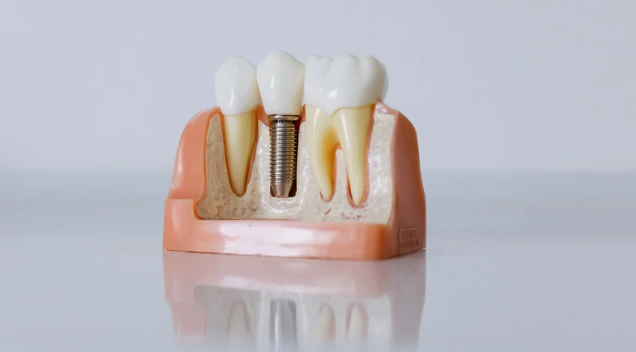Chipped teeth aren’t just a cosmetic issue—they can shatter your confidence, make everyday interactions anxious moments, and even affect how you eat and speak. If you’re in India and have experienced a minor or significant chip, two cosmetic dentistry solutions rise above the rest: dental veneers and dental bonding. Both aim to repair and restore that flawless, youthful smile—but which one is better for your specific needs and situation?
This in-depth guide explores the differences, advantages, and ideal scenarios for both treatments, incorporating real Indian context so you can make an informed, confident choice for your smile and budget.
Understanding the Basics: What Are Veneers and Bonding?
Dental bonding uses a tooth-coloured composite resin (plastic-like material) that is directly sculpted and bonded onto your chipped tooth. The process is usually fast, completed in a single dental appointment, and is especially suited for minor chips, cracks, or gaps.
Dental veneers, on the other hand, are ultra-thin, custom-crafted shells (usually made from porcelain or high-quality ceramic) that are permanently bonded to the front of your tooth. Veneers require more preparation but can provide a dramatic, long-lasting transformation—ideal for more noticeable chips, multiple cosmetic flaws, or a full smile makeover.
Dental Veneers vs Dental Bonding
Major Differences: Quick Comparison Table
| Feature | Dental Bonding | Dental Veneers |
| Material | Composite resin | Porcelain/ceramic (sometimes composite) |
| Durability | 3–7 years | 10–15+ years |
| Aesthetics | Good, but less lifelike than veneers | Excellent—mimics natural enamel |
| Stain Resistance | Can stain over time | Highly stain-resistant |
| Procedure Time | Usually 1 visit (30–60 min/tooth) | 2–3 visits (lab-made, more complex) |
| Tooth Preparation | Minimal or none | Requires some enamel removal |
| Cost per Tooth (India) | ₹3,000–₹8,000 | ₹15,000–₹30,000+ |
| Reversible | Usually, as enamel isn’t removed | Not reversible (enamel is removed) |
| Best For | Minor chips, budget fixes | Larger chips, smile makeovers, best aesthetics |
| Maintenance | Needs repairs/touch-ups every few years | Lasts longer, less frequent maintenance |
Dental Bonding for Chipped Teeth: Pros and Cons

Advantages
- Speed and Convenience:Most cases are finished in one visit, making it perfect for busy students, professionals, or anyone seeking same-day improvements.
- Affordability:In India, the price is accessible for most (a fraction of what you’d pay abroad).
- Conservative:Very little or no removal of healthy tooth enamel.
- Painless:Often no anesthesia needed.
- Reversible:You can opt for other treatments later without issues.
- Aesthetically pleasing for small repairs:When expertly sculpted, bonding is nearly indistinguishable from natural teeth.
Drawbacks
- Durability:The resin can chip or wear, especially on biting edges. Normal lifespan is around 3–5 years—sometimes more with great care.
- Staining:Composite resin can absorb stains from tea, coffee, and spices over time.
- Not for Major Damage:Larger chips or structurally weakened teeth may need stronger solutions.
Dental Veneers for Chipped Teeth: Pros and Cons

Advantages
- Outstanding Aesthetics:Porcelain reflects light like natural enamel and is crafted to blend perfectly with the rest of your smile.
- Longevity:Veneers can easily last 10–15 years (sometimes longer) with good dental hygiene and habits.
- Stain Resistance:Highly resistant to stains—even from coffee, red wine, and Indian spices.
- Versatility:Can cover chips, color imperfections, worn down/uneven teeth, and even small gaps in a single procedure.
- Strength:Porcelain is considerably tougher than bonding resin.
Drawbacks
- Cost:Initial investment is higher, but for those prioritizing long-term value and appearance, many find it worthwhile.
- Invasiveness:Requires removal of a thin layer of enamel. This makes the procedure irreversible.
- Procedure Time:Usually needs two or three appointments—preparation, impressions, and final bonding.
Key Factors to Weigh Before Deciding
- Extent of Chip:
Minor chip: Bonding is sufficient and budget friendly.
Large chip, multiple or combination of issues:Veneers provide better coverage, longevity, natural appearance, and strength. - Budget: Bonding is easier on Indian pockets, while veneers are an investment in your smile’s future.
- Time: Need a quick fix before a wedding, interview, or event? Go for bonding. For transformative results, plan a little ahead for veneers.
- Aesthetics: Veneers are unbeatable for seamless, natural radiance, especially for chips on visible front teeth.
- Future Plans: If you envision more smile upgrades later, bonding is a good starting point (and reversible).
Why Does This Choice Matter So Much in India?

India has become a hub for affordable, world-class dental aesthetics, attracting both domestic and international patients. Dental clinics in metros like Mumbai, Delhi, Bengaluru, Chennai, and Hyderabad use digital smile design, CAD/CAM technology, and materials on par with international standards. At the same time, labor and infrastructure costs ensure these treatments are often 60–80% more affordable than in Western countries.
Moreover, Indian dentists are trained in both quick-fix and premium, Hollywood-worthy smile solutions—so patients truly get customized guidance.
The Consultation: An Essential First Step
Every mouth is unique, and so is every chipped tooth! Your decision shouldn’t be made in isolation:
- A skilled dentist will assess the size, location, and reason for the chip.
- They’ll also consider your bite, how much enamel you have left, and your goals (cosmetic and functional).
- This ensures you get a natural, durable smile with the best value for your investment.
Final Word: Which Is Better for You?
Choose dental bonding if:
- The chip is small or in a less visible spot.
- You need speed and affordability.
- You want minimal alteration and the option to “upgrade” later.
Opt for dental veneers if:
- The chip is large, deep, or combined with other cosmetic flaws.
- You demand the utmost in aesthetics, durability, and stain resistance.
- You’re ready for a long-term investment in your appearance.
Still unsure? A consultation at a reputed dental clinic in India will give you a personalized roadmap.
In summary:
Both dental veneers and bonding are excellent, modern solutions for chipped teeth. By understanding your goals, budget, and dental health, and by partnering with a skilled cosmetic dentist, you’ll restore your smile—and your confidence—in the way that’s perfect for you.


